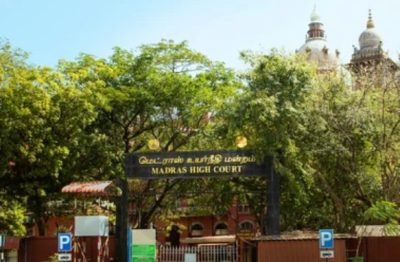Quasi-judicial bodies as part of their adjudicatory functions are burdened to provide a reasoned decision in the lights of the facts presented to them. The Madras High Court, in its judgment dated 11th December 2023 reiterated this principle of natural justice in a matter of appeal to an order of patent refusal.
The Appellant made the present patent application in 2018 for an invention titled “System and method for determining quality attributes of raw material of textiles”. The application consisted of 10 claims, of which 2 were ‘method claims’ and the rest were ‘system claims’
The First Examination Report pointed out that there are deficiencies in the application under section 3(k) of the Patents Act 1970 and lack of inventive step. Accordingly, amended claims were submitted in response. At the hearing stage, where these objections were raised again, the Applicant retained only the method claims and eliminated all system claims.
[Image Sources: Shutterstock]
On 2nd July 2019, the application was rejected under Section 3(k) and Section 2(1)(ja) of the Patents Act 1970, despite the relevant amendments. The impugned order rejects the application on these grounds after relying on the ‘system claims’, despite the fact that they were removed in response to the hearing notice. Aggrieved, the Applicant made an appeal to the Madras High Court to set aside the order of the Controller under Section 117A of the Patents Act 1970.
The Appellant claims under this appeal that the order of rejection of patent application is not a reasoned one on the grounds that they considered the un-amended version of the claims for the purpose of the order. Further, if the Controller has rejected the amendments to the application, the reasoning for the same had not been provided.
The single judge bench in this matter took note of these facts and observed that the order simply extracted the provisions of Section 59. The conclusions of lack of inventive step were not supported by any reasons. The Court set aside the impugned order as the Controller provided no reasons in support of conclusions recorded. It was held that such orders are unsustainable and the patent application was remanded for reconsideration and issuance of a reasoned decision.
In the course of this judgment, the hon’ble Justice Ramamoorthy opines that it is necessary for a quasi-judicial body to provide cogent reasons for its conclusions. A patent applicant asserts ‘substantive proprietary rights’, therefore, it is essential that the submissions made in the course of the application are considered and dealt with in the adjudicatory order. Such orders must be self-contained and self-explanatory as well.
The judiciary in a plethora of cases has emphasised the importance of reasoned decisions. This is a duty of quasi-judicial bodies and judicial bodies under administrative law. The Madras High Court, through this judgment has once again reiterated this principle. This ruling not only protects the rights of the applicants, but also sets a precedent for ensuring integrity in the patent adjudication process.
Case: Ashok Oswal v Assistant Controller of Patents and Designs




